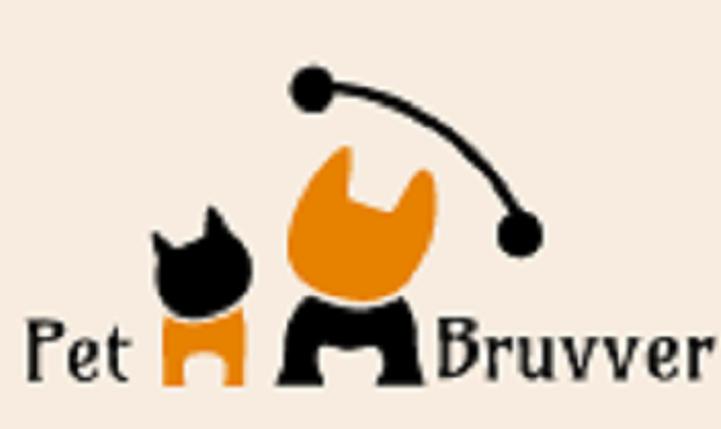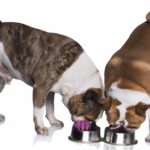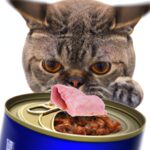If you’re like me, you love your Bulldog. But you may have wondered at some point, can Bulldogs eat onions?
The answer is yes! Bulldogs can safely eat onions in small amounts. However, onions contain a lot of sulfur, which can cause flatulence and other digestive issues for your pup. So if you’re going to give your Bulldog onion, be sure to do so in moderation.
Introduction: Why onions may not be the best food for your bulldog.
Onions are not a part of a bulldog’s natural diet. In the wild, a bulldog’s diet would consist mainly of meat and other animal products. However, in captivity, bulldogs are often fed a diet that includes vegetables and fruits. While onions are not harmful to bulldogs in small amounts, they are not an ideal food for them. Onions contain a compound called thiosulfate, which can be toxic to dogs in large amounts. Thiosulfate can cause diarrhea, vomiting, and other digestive problems in dogs. It is important to feed your bulldog a balanced diet that includes all the nutrients they need to stay healthy.
Nutritional value of onions: Why they might not be as healthy as you think.
Onions are a staple in many cuisines worldwide and are prized for their unique flavor. But are they as healthy as we think?
Onions are low in calories and a good source of fiber, with one cup containing just 44 calories and 2 grams of fiber. They are also a good source of Vitamin C, with one cup providing 20% of the recommended daily value. However, onions also contain high levels of sulfites, which can trigger allergies in some people.
When it comes to the nutritional value of onions, it is important to remember that they are mostly water. This means that they will not provide you with many essential nutrients, such as protein or fat. If you are looking for a food that will help you meet your daily nutrient needs, then you should look elsewhere.
The dangers of onions: Why they can be harmful to your dog.
Onions are a member of the Allium family, along with garlic, shallots, leeks, and chives. These foods contain sulfur-containing moisture that can be harmful to your dog. If your dog ingests enough of these compounds, they can cause anemia (a decrease in the number of red blood cells). This can result in a dangerous condition called hemolytic anemia, where the red blood cells are destroyed faster than they can be produced.
Symptoms of onion poisoning in dogs may include vomiting, diarrhea, weakness, difficulty breathing, or collapse. If you think your dog has eaten onions or any other Allium vegetable, call your veterinarian immediately. Bloodwork will need to be done to check for anemia and other potential complications. Treatment may include giving your dog supplemental oxygen or a blood transfusion if necessary. With prompt treatment, most dogs recover fully from onion poisoning.
How to prepare onions for your dog: Some tips to make them safer.
Never feed your dog a raw onion. Onions contain a substance called thiosulphate, which is toxic to dogs and can cause anemia. To make them safe for your dog, you need to cook the onions first.
Here are some tips on how to prepare onions for your dog:
– Remove the skin and any green parts from the onion. These contain the most thiosulphate.
– Cut the onion into small pieces. The smaller the pieces, the less thiosulphate they will contain.
– Cook the onion thoroughly. Thorough cooking will break down the thiosulphate and make it safer for your dog to eat.
– Add the cooked onions to your dog’s food as a flavoring or treat.
Feeding onions to your dog: How to do it safely.
Onions are a common ingredient in many human foods, but they are not safe for dogs to eat. Onions, and other members of the Allium family (including garlic, leeks, and chives), contain a substance called thiosulfate. This substance is toxic to dogs and can cause a condition called hemolytic anemia, in which the red blood cells break down.
If you want to feed your dog onions, you can do so safely by cooking them first. This will break down the thiosulfate and make it safe for your dog to consume. Feeding raw onions to your dog is not recommended, as even a small amount can cause health problems. If you must feed your dog raw onions, make sure to chop them very finely so that they pose less of a risk.
Signs that your dog is not tolerate onions well: What to look for.
Onions are often used as a flavoring in many human foods, but they can be toxic to dogs and cause anemia. If you suspect your dog has eaten onions, watch for these signs and symptoms and call your veterinarian right away.
-Lethargy
-Weakness
-Pale gums
-Breathlessness
-Collapse
-Tremors
Alternatives to onions: Some other foods to consider.
Onions are a member of the allium family, which also includes garlic, shallots, and leeks. Alliums are known to be toxic to dogs in large quantities, so it’s best to avoid them altogether. However, if your dog does eat onions, there are a few things you can do.
If you know your dog has eaten onions, the first thing you should do is call your veterinarian. Onions can cause anemia in dogs, so it’s important to get your pet checked out as soon as possible.
In the meantime, there are a few things you can do at home to help your dog feel better. Start by offering your dog small amounts of water or low-sodium chicken broth to drink. You can also give your dog small amounts of plain white rice or mashed potatoes. These bland foods will help to settled your dog’s stomach.
If your dog is still vomiting or showing other signs of distress, call your veterinarian right away.
Conclusion: A summary of everything you need to know about feeding onions to your bulldog.
Onions are not safe for Bulldogs to eat, regardless of whether they are cooked, raw, or in any other form. Bulldogs should not eat onions because they contain a compound called thiosulphate, which is toxic to dogs and can cause anemia. Even a small amount of onion can make a Bulldog sick, so it is best to avoid feeding onions to your Bulldog altogether. If you think your Bulldog has eaten onions, contact your veterinarian immediately.


